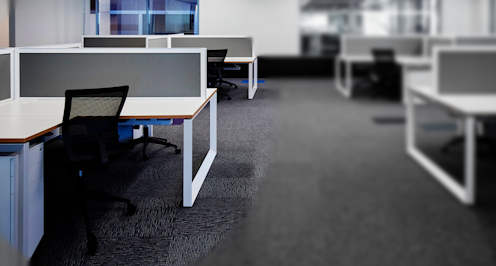An investment in clean indoor air would do more than help us fight COVID – it would help us concentrate, with lasting benefits
- Written by Peter Martin, Visiting Fellow, Crawford School of Public Policy, Australian National University

Sometimes the best things you can do are invisible.
Such as fighting cholera by ensuring drinking water wasn’t contaminated by sewage, as happened in London in the 1840s.
Or setting up an emissions trading scheme, which drove emissions down, despite former prime minister Tony Abbott attacking it as a “so-called market in the non-delivery of an invisible substance to no one”.
Air free from contamination is as invisible as uncontaminated water, but the case for air isn’t yet as widely accepted as it is for water.
Air pollution from motor vehicles kills about 280 Australians per year, yet Australian petrol is allowed to contain 15 times as much sulphur as petrol sold in the US, the UK, Europe, Korea, Japan and New Zealand. Australia is planning to adopt in 2024 the standard adopted elsewhere in 2015.
And poor air quality harms us in ways that fall short of death.
Poor air harms performance
A new six-nation study of office workers in countries from China to the United States found that where ventilation is poor and levels of particulate matter are high, workers perform worse or more slowly on tests involving adding and subtracting and colour-coding words.
Another study on the relationship between indoor air quality and competitive chess players found that when the concentration of fine particulate matter with a diameter smaller than 2.5 micrometres (0.0025mm, better known as PM2.5) climbs as much as it can, players are 26% more likely to make mistakes.
The effect is worse if the players are running out of time.
Smart employers recognise this. When Google moved into a new headquarters in Mountain View, California, it was offered air filtration that cut pollutants to 0.0001 parts per billion. It opted for zero parts per billion, and paid more to get it.
Read more: Australian children are learning in classrooms with very poor air quality
If performance and education matter (and they do – on Monday the government launched a new inquiry into productivity) we ought to be treating clean air as an investment in productivity, over and above its undoubted benefit in containing the spread of COVID.
Here’s my big idea. The A$14 billion Building the Education Revolution program Labor put in place during the global financial crisis both helped fight the crisis and left Australia with thousands of school halls.
As far as legacies go, this wasn’t bad. The halls have been used for assemblies and plays and before and after school care.
But a program designed to contain the spread of COVID that left Australia with schools and workplaces in which the occupants were able to think clearly, and rarely caught infections – that would deliver an enduring dividend.
Many schools have openable windows, as do some workplaces. But in winter and for security reasons they are often closed and not reopened.
Distinguished Professor Lidia Morawska, director of International Laboratory for Air Quality and Health at the Queensland University of Technology, says outside air typically contains about 420 parts per million of carbon dioxide.



















